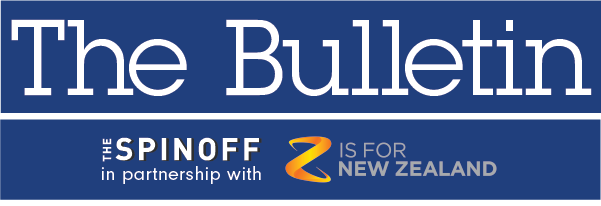Government's day to confront housing crisis
An out of control housing market is driving inequality, and pressure on the government is getting stronger
Good morning and welcome to The Bulletin for Tuesday 23 March, by Alex Braae for The Spinoff. Presented in partnership with Z Energy.
In today’s edition: Government's day to confront housing crisis, travel bubble announcement announcement made, and Corrections minister rebukes department.
(Getty Images)
Today's the day in which we find out how the government intends to confront the housing crisis, which has been dragging them down ever since winning reelection. The problems are multifaceted – in some cases the crisis reflects a lack of supply, in some cases it's about people living in inadequate or unsafe homes, in some cases it's about people being unable to get on the ladder because of extreme price inflation – and of course all of those problems are connected. As such, the package of measures is expected to cover supply, demand, and access for first home buyers.
Why is the demand part important? Because right now, the housing market is fuelling a severe and possibly irreversible increase in inequality. Several days ago Newshub reported that the share of homes being sold to people who already owned property was at a record high. The long-term consequences of that are obvious – greater concentration of wealth in fewer hands, with all of the societal and economic problems that come with that. Our economic system is also currently stacked very heavily in favour of simply buying and selling houses, which does little to grow any real wealth.
Immense pressure has come on the government from all sorts of angles. Every party currently in parliament has their suggestions and prescriptions. Economists have weighed in. Even the Reserve Bank governor has been getting into it, telling One News that successive governments had failed, allowing the current situation to develop. The announcement will be made at 9am, so if you're reading this after that, keep an eye on The Spinoff's homepage for our live updates and coverage.
Not every announcement can be a total showstopper, but even by generous standards yesterday's travel bubble news was underwhelming. In fairness, we weren't promised we'd get a date yesterday, and that non-promise was duly delivered on. Our live updates reports the announcement involved the announcing of a further announcement of a date for the bubble to open, to be announced on April 6. Unbecoming sarcasm aside, there was also more detail about the criteria by which the government will make the decision, and further confirmation that outbreaks would likely require the travel bubble to close at very short notice.
Corrections minister Kelvin Davis has issued a rebuke to his department over the treatment of inmates at Auckland Women's Prison. Justin Giovannetti reports the minister made the comments in a "blistering" letter to the CEO of Corrections, in which he asked the department to apologise to the women. It is quite a change in tone for Davis, who a month ago seemed much less concerned. The "inhumane" mistreatment first came to light after dogged reporting from Radio NZ, and the allegations were later backed up in a ruling from a District Court judge.
The Spinoff can’t exist without our members. If you want to help us stay curious and keep our team across New Zealand’s breaking stories, please donate today.
A major internal report from the SIS about the leadup to the Christchurch mosque attack has been released, reports Radio NZ. The internal report was carried out differently from the Royal Commission, and involved the spies looking at themselves to identify where they failed. "We also needed an external expert to identify steps we could take to improve our ability to identify and disrupt such attacks in the future," said SIS chief Rebecca Kitteridge. The full 135 page report can be read on the RNZ website.
The Peruvian ambassador to NZ is currently under investigation in his country for alleged exploitation of workers in this country, reports Conor Whitten for Newshub Nation. One former maid has spoken on the record, and it appears others have spoken off the record, about the allegations that have been described as a form of 'modern slavery'. The allegations are extensive, and run the gamut from extreme employment exploitation to personal abuse from the ambassador's family. Ambassador Javier Prado issued a statement confirming he was under investigation, and asserting that the maid's employment (and termination) all took place within Peruvian law.
The tarakihi population is close to collapse, with the blame falling on both the fishing industry and a lack of government protection, reports Radio NZ's Conan Young. Stocks are now down to 15% of their original level – for context, a fish that gets to 40% of their original levels are considered overfished, so it's dire. Then-fisheries minister Stuart Nash knew in 2019 that action was needed to protect the fish, but he caved to industry pressure and decided against substantive cuts to catch levels. Speaking personally, I will not buy tarakihi ever again, as a tiny and insignificant measure against environmental failure.
A managed isolation worker at the Grand Millennium hotel has tested positive for Covid-19. On Radio NZ's morning news bulletins, it was reported that the person is isolating at home with their family (who are also isolating) but may be moved to quarantine. It isn't clear if they have been vaccinated. Rather than being a reason to panic, it would appear this is a case of the testing system working as intended. In related news, Newsroom's Matthew Scott has written about managed isolation workers campaigning to get something akin to danger pay, given the obvious risks and hardships of their work.
Got some feedback about The Bulletin, or anything in the news?
Drop us a line at thebulletin@thespinoff.co.nz
Right now on The Spinoff: Dr Alex Beattie and Associate Professor Rebecca Priestley have gone deep on an analysis of the first year of 1pm Covid press conferences. Danyl Mclauchlan argues against the claims currently being made by the republican movement about ditching the monarchy. Collin Tukuitonga explains the factors at play in opening up travel bubbles with Pacific islands. David Frame and Adrian Macey comment on climate rhetoric out of Britain not matching reality. Jessica Halliday writes about the "truth and beauty" of the concrete used in the Christchurch Town Hall. Sam Brooks offers some dubious tips on how to become an influencer.
And our excellent web series Scratched is now on an even bigger platform. Every episode is available to watch on TVNZ on Demand – if you've already watched them, don't worry, they hold up to repeat viewing.
For a feature today, a clear-sighted look at a big financial play that came off poorly. To date (and who knows, it might turn around) the My Food Bag listing on the NZX won't have really inspired investors or the market with much confidence. Over at Business Desk (paywalled) Brian Gaynor asks what went wrong. Here's an excerpt:
The share sales by CEO Kevin Bowler and CFO Mark Winter have been particularly interesting.
Bowler has been quoted as saying that his decision to sell shares did not reflect a lack of confidence in the future performance of the business, but rather part of a tax obligation and drive for founding shareholders to sell down their shareholding to make room for public investment. The PDS tells a different story.
It states MFB had a senior executive share ownership scheme whereby participants were ‘provided with an interest-free loan in order to fund the exercise price of options up to 100% of the amount of the exercise price of those options’. The PDS went onto state that ‘participants are entitled to sell up to 75% of the shares held by them under the scheme before the offer through the offer, with the proceeds to be used to repay loans made by My Food Bag to participants’.
Rugby league player Jarryd Hayne has been found guilty on two counts of sexual assault by a court in Sydney, reports the NZ Herald. He was also found not guilty on a charge of aggravated sexual assault while recklessly inflicting actual bodily harm. The trial was the second Hayne had faced, after an earlier round ended with a hung jury. Nor was it the first time Hayne has faced allegations of forcing himself on a woman, with an earlier unprosecuted allegation in relation to his time in the USA. Hayne is yet to be sentenced, but faces jail time.
That's it for The Bulletin. If you want to support the work we do at The Spinoff, please check out our membership programme







